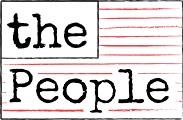Civics U: The ‘Negative’ Function Of Government
No, this does not refer to negative or ‘bad’ things that government does, even though people often have negative and critical thoughts about the government and politics.
Legitimate government has a number of functions: some that are negative and some that are positive.
Positive in this context refers to the power of government to require or enable people and its own units to do something. Negative refers to the power of government to prohibit or prevent people and its own units from doing something that should not be done.
The fundamental purpose of negative powers is to protect liberty. The government is filling a ‘negative’ role when it punishes evil. This role involves punishing bad behavior in order to protect citizens’ freedom to pursue something legitimate. By punishing evil, the government is protecting a citizen’s freedom to pursue happiness, and life, including health and private enterprise and private property.
In terms of positive powers, government at various levels may require and authorize such things as the payment of taxes, establishment of roads, operation of schools, and requiring the use of baby car seats. In terms of negative powers, governments at various levels may, for example, prohibit and punish theft and murder, set speed limits, prohibit slander, prohibit sale of inclined baby sleepers, and set emissions limits for vehicles.
In the case of dictatorial and despotic governments, there is little limit on either positive or negative actions. But in the United States, principles of liberty place restrictions on both.
The Constitution asserts that government will secure the blessings of liberty to its citizens and future generations. Liberty encompasses those first freedoms – of religion, of speech and of the press, of assembly, of petition for redress – which likewise constitute our fundamental rights.
The role of government is not to dictate to the people what they are to do, but to protect the people’s freedom to do what they choose to do, both individually and collectively.
To do this, the government must act to prevent harmful actions by citizens that would encroach on others’ freedom and security. It must also limit its own actions and power – that is, the people must also act to limit their governments’ actions and power to keep it from unnecessarily encroaching on individual liberties.
Government is not to dictate to people what to believe, but it is to protect people’s freedom to practice what they believe; government is not to tell people what to say or write, but it is to protect people’s freedom to express themselves freely; government is not to force people to assemble, but it is to protect their freedom to gather as they will.
To fulfill this, government must assert both its positive and negative functions. In its negative function it must limit actions by individuals, groups, and government that threaten or infringe on and lessen other people’s liberty. At times it must then also provide means for the resolution of conflicts, either judicially or administratively.
American freedom historically also encompasses economic freedom, including capitalism and “free enterprise”. But when is ‘negative’ action needed, such as in regulating free markets, or protecting copyrights? When can government and society decide that certain business are legal or illegal? When do corporate monopolies restrict the freedom and ability of small businesses to thrive? When do unions or worker strikes restrict the freedom and ability of business owners to thrive? When can government restrict which objects or substances a person may own or possess? When can government require organizations or individuals to have licenses to market and practice certain vocations or enterprises or skills?
The Voice of the Martyrs, an online magazine, reported that recently in China authorities arrested the owner of an online Christian bookstore and launched an extensive investigation into everyone who had purchased from the store. Government officials confiscated books and interrogated Christians who had shopped at an online Christian book retailer. China’s attacks on full freedom of religion are well known.
When or why might such a thing be shocking in the U. S.? Even in the U.S., business owners and bookstore owners are often required to have a retail sales license.
This is where concepts and questions arise about limited government, big government, and how much government is needed and wanted. What should the government do and when has it done enough on the positive side to promote and provide for the general welfare? in education? in health? in business? in research? in technology? What should the government do and when has it done enough on the negative side to guarantee individual and collective liberty and freedoms?
Today protecting liberty is complicated. Defining the boundaries where one action or practice encroaches on another freedom can be difficult. Current issues, ranging from “big tech’s” ability to limit and censor speech on its platforms; defining behavioral boundaries on assembly in the form of demonstrations and protests; ownership of guns; abortion; the death penalty; and various government activities commonly involve questions about protecting and/or limiting someone’s liberty.
The issues are too many to explore here. For now I can only close with the ageless reminder: Eternal vigilance is the price of liberty.

